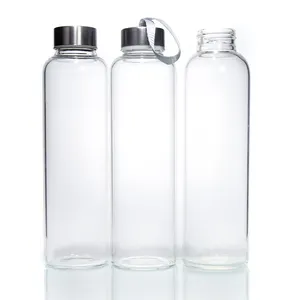Popular in your industry
















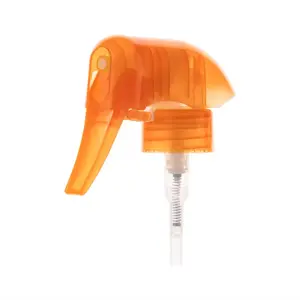




















































Related Searches:
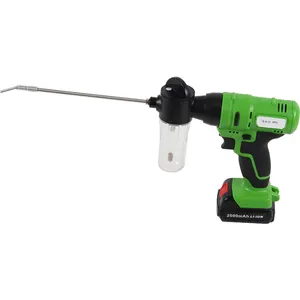















































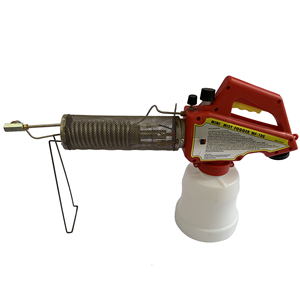
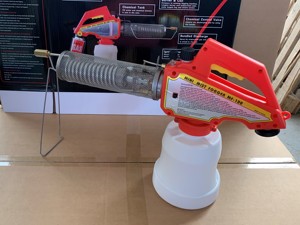
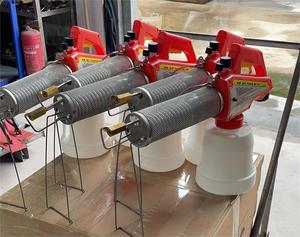


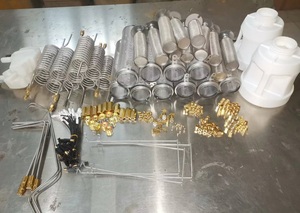


















Top categories
About spray that kills ants
Introduction
Ants, despite their small size, can pose significant challenges to homeowners. Their infestations can lead to health risks and property damage, making it crucial to find effective solutions. This article delves into the world of ant infestations, exploring the behaviors of different ant species, the evolution of ant sprays, and the science behind how these sprays work. We will also unveil the best ant sprays of 2023, providing a comprehensive guide to help you stay ant-free. Whether you're dealing with a minor infestation or a full-blown ant invasion, this article will equip you with the knowledge you need to tackle the problem head-on.
Understanding the Ant Problem
Ant infestations are a common issue for homeowners, regardless of the season. It's challenging to completely seal off your home from the numerous species of ants. Understanding why ants are invading your home is a crucial first step in minimizing these invasions. Factors such as leaving out food, having greasy surfaces, sticky garbage, leaking pipes and faucets, and decaying wood around your home can attract ants. If the infestation persists, professional help may be required.
Types of Ants and Their Behaviors
Ants are diverse in appearance and behavior, with over 1,000 species in North America alone. Some common types include Carpenter ants, known for their destructive tunneling in moist wood, and Fire ants, notorious for their painful sting. Crazy ants are unique for their zigzagging movement and attraction to electrical equipment. Little Black ants are hard to spot due to their tiny size, while Odorous house ants emit a foul smell when crushed. Each type of ant presents unique challenges, making it crucial to understand their behaviors when choosing an effective ant spray.
The Impact of Ant Infestations
Ant infestations are a common problem that can pose significant health risks and cause property damage. While ants are not known to transmit diseases like other pests, they can still pose health risks to humans. In addition to health risks, ants can also cause property damage. Acting quickly to protect your health and property is essential when dealing with an ant infestation.
The Evolution of Ant Sprays
Pest control has evolved significantly over the centuries. From the use of sulfur compounds by ancient Sumerians to kill insects, to the deployment of predatory ants by the Chinese against pests, various innovative methods have been employed. The scientific awakening infused by the European Renaissance led to the discovery that substances like nicotine and certain herbs could repel insects. The use of pesticides gained ground from the late 1800s, with the invention of synthetic insecticides. The harmful side effects of pesticides on humans have now led to the development of newer approaches, such as the use of biological, genetic, and other tactics.
How Ant Sprays Work
Ant sprays work by disrupting the functioning of ants' nervous systems or by inhibiting their growth. Ingredients like Hydramethylnon prevent ants from converting food into energy, leading to their elimination. Avermectins, derived from soil fungus, inhibit nerve transmission and halt the production of viable eggs. Oxadiazines like Indoxacarb block sodium channels in nerve cells, causing paralysis and death. Phenyl pyrazoles like Fipronil block the passage of chlorine ions, disrupting nerve cell function. Insect growth regulators mimic the effects of the insect’s own juvenile hormone, reducing the production of viable eggs and preventing the development of worker ants.
Key Ingredients in Ant Sprays
Ant sprays contain various active ingredients that target and eliminate ant colonies. Some common active ingredients include hydramethylnon, fipronil, boric acid (borate or various forms of sodium borate), and avermectin B (abamectin). However, it's crucial to avoid products with cyfluthrin or permethrin, as these are contact insecticides that kill foragers but don't control the colony. Similarly, bait stations with propoxur or indoxacarb aren't very effective due to their fast-acting nature. The effectiveness of ant sprays can vary with the ant species, bait material, and availability of alternative food.
Unveiling the Best Ant Sprays of 2023
In 2023, the market offers a variety of effective ant sprays. Our platform features a budget-friendly option with a plant-based formula, safe for indoor use, and kills on contact. We also offer a gel-based product that kills many species of ants and is easy to use. Additionally, we have a natural formula that prevents and kills ants, safe to use around kids and pets. However, it has an oily formula. These sprays offer different features to cater to various needs and preferences.
Top 5 Ant Sprays: Features and Benefits
Our platform features a powerful indoor solution that kills on contact without leaving unpleasant odors. We also offer a spray, usable both indoors and outdoors, that kills on contact and claims to have a residual repellent effect for up to six weeks. Both sprays are effective against a variety of ants and other bugs.
User Reviews and Testimonials
Users have highly praised the effectiveness of our liquid ant baits. These products are appreciated for their simplicity, availability, and effectiveness. The active ingredient, borax, has a proven track record against indoor ants. The clear bait station of one of our products is easy to monitor, earning it positive reviews. We also offer baits that are appreciated for their aesthetic design and versatility in placement. We also have a product recommended for its fast-acting and effective ingredient, indoxacarb.
Safety Precautions When Using Ant Sprays
When using ant sprays, it's crucial to prioritize safety. Pesticides, including ant sprays, can enter the body through inhalation, ingestion, or absorption by the skin and eyes. Hence, it's important to wear protective clothing such as long-sleeved shirts, long pants, nonabsorbent gloves, rubber footwear, a hat, goggles, or a dust mist filter. Avoid contact lenses as they may trap materials on the eyes. Always follow proper cleaning procedures after applying pesticides. Remember, using more pesticide than the label recommends will not do a better job and is illegal.
Alternatives to Ant Sprays
If you're looking for alternatives to ant sprays, consider natural, non-toxic methods. Diatomaceous earth, a silica dust from diatoms, works quickly on contact. Ants' sense of smell can be disrupted by black or cayenne pepper. Essential oils like peppermint, cinnamon leaf, and lemongrass also act as natural repellents. White vinegar can kill and repel ants, while baking soda or borax can be used in homemade ant bait traps. Lastly, citrus fruit rinds, particularly oranges and lemons, contain d-limonene, which is poisonous to ants.
Conclusion
Ant infestations are a common problem that homeowners face, but with the right knowledge and tools, they can be effectively managed. Understanding the behaviors of different ant species and the factors that attract them to your home is the first step. Ant sprays, with their various active ingredients, have evolved to become more effective and safer for use. The best ant sprays of 2023, available on our platform, offer a variety of features to cater to different needs. However, safety precautions must always be taken when using these products. For those seeking natural alternatives, options like diatomaceous earth, essential oils, and homemade ant bait traps are also available. With this comprehensive guide, you can confidently tackle your ant problem and maintain an ant-free home.





